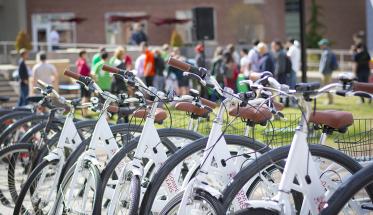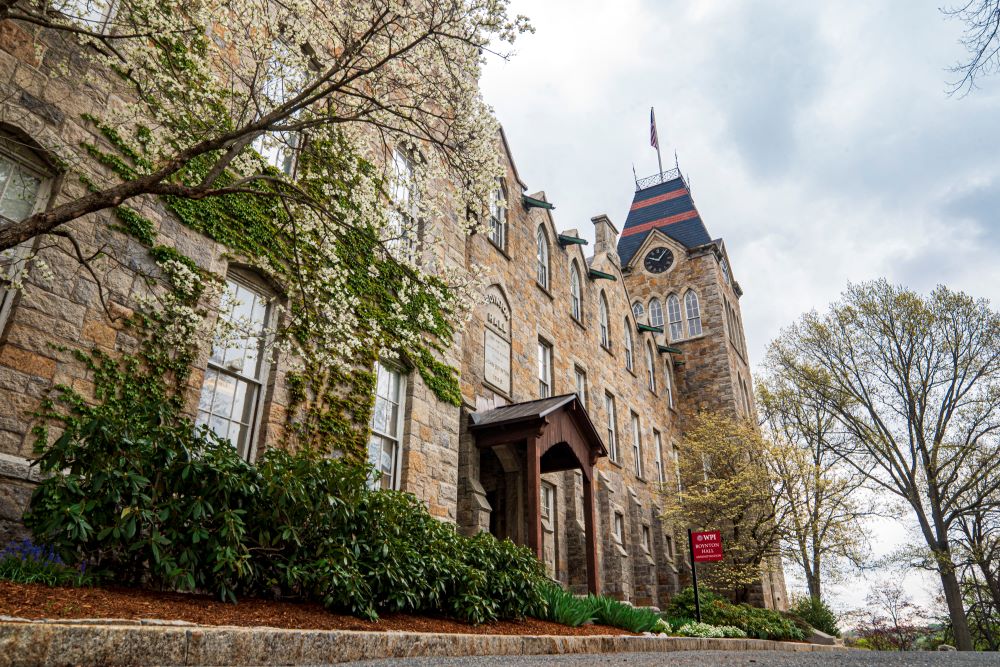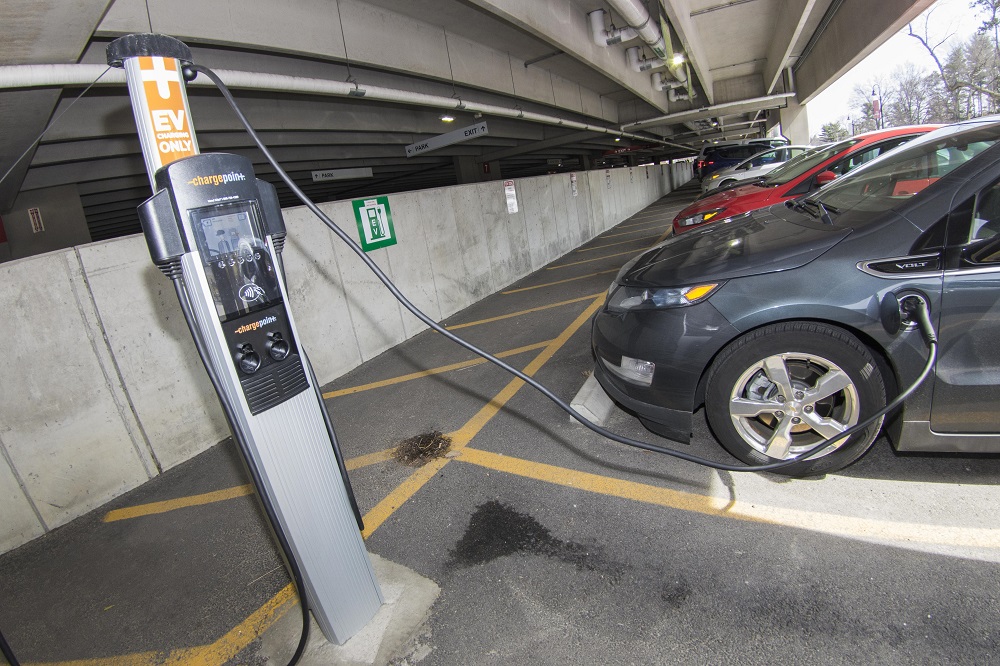Did you ever have an idea on how we could use less heating fuel on campus? How to reduce WPI’s carbon footprint? How to conserve water and energy in residence halls and classroom buildings?
An exciting new opportunity exists for members of the WPI community to contribute to and engage in making WPI a more sustainable campus. WPI’s Sustainability Advisory Committee has created a new initiative—the Green Revolving Fund (GRF) Community Initiative. The goal of this initiative is to encourage and support sustainability projects on the WPI campus that will generate financial returns, reduce environmental impact or carbon emissions, enhance the academic climate, and engage the WPI community. The cost savings resulting from these projects will be returned to the GRF, ensuring its sustainability into the future.
“We want to promote creativity in meeting these challenges,” says Professor Paul Mathisen, director of sustainability. “We would like to see the GRF expand into the community and engage staff and students. A student or group could see a specific need on campus, and they would promote a sustainable and cost-effective solution for this need. We’re looking forward to seeing what people come up with.”
A plan for energy, resource conservation
Two years ago a number of students committed to environmental responsibility developed and championed a plan for WPI to implement energy and resource conservation projects on an ongoing basis, with financial savings replenishing a fund to support future projects. Thanks to support from President Laurie Leshin, CFO Jeff Solomon, and the Facilities Department, we now have this fund at WPI.
“We want to promote creativity in meeting these challenges. We would like to see the GRF expand into the community and engage staff and students. A student or group could see a specific need on campus, and they would promote a sustainable and cost-effective solution for this need. We’re looking forward to seeing what people come up with.” -Paul Mathisen
These “Green Revolving Funds” have been successfully implemented at other universities and have demonstrated the ability to conserve resources, protect the environment, and also save money. A key element of the fund is community participation in identifying projects, both large and small, that have a combination of sustainability impact and financial savings.
The Green Revolving Fund provides major financing for projects that will increase efficiency and reduce waste on campus, and whose savings over time will sustain the fund. It has funded projects in the last year that will result in savings estimated at more than $150,000. And projects slated for completion in the next fiscal year could realize more than $120,000 in lighting and other electrical cost reductions.
Projects financed by this fund will also play a major role in implementing the university’s Greenhouse Gas Reduction Plan.
Past projects have resulted in savings
“WPI is contributing $1.5 million of funding to initiate the GRF,” says Mathisen. “We’ve already seen significant savings through the projects that have been completed. We would like to see the GRF, in general, integrated more closely into our curriculum. Students can learn a lot while providing a creative solution to a campus need as well as insight on how to reduce costs through the new projects.
The GRF Community Projects Initiative will provide $30,000 annually to support WPI on-campus projects. It is anticipated that the $30,000 will support up to three campus capital projects, although this may vary from year to year.
Reducing the university’s carbon footprint
The GRF Community Initiative was established to specifically engage students and staff to identify sustainability-themed projects that would reduce the carbon footprint on campus and generate cost savings. The fund is promoted and supported in conjunction with the GRF Subcommittee, which supports WPI’s Sustainability Advisory Committee.
- By Martin Luttrell




